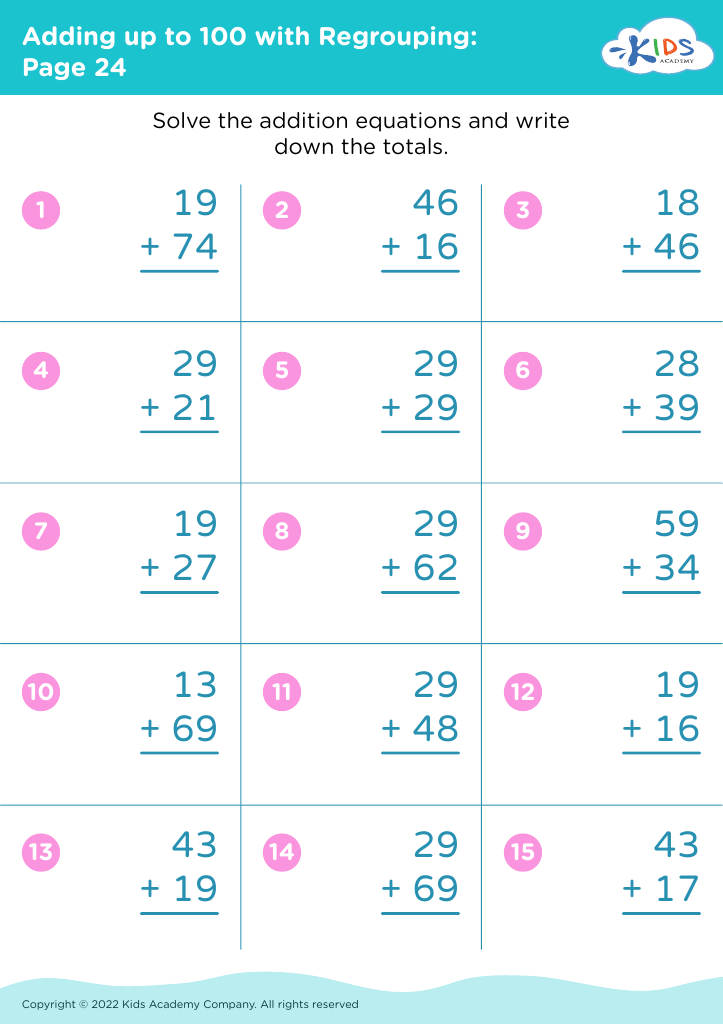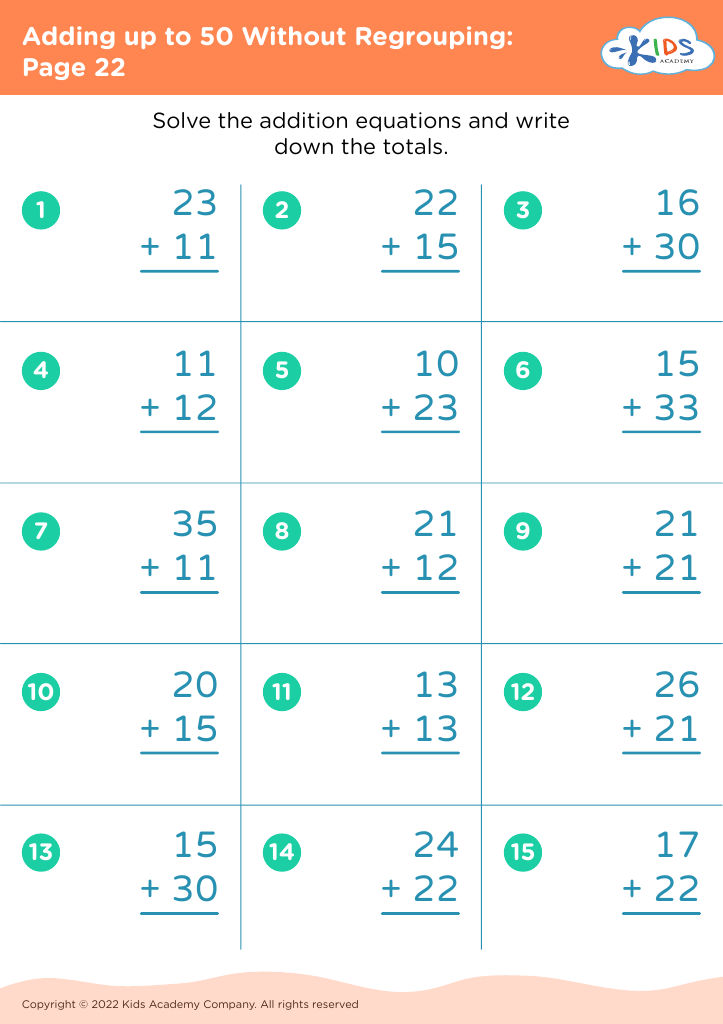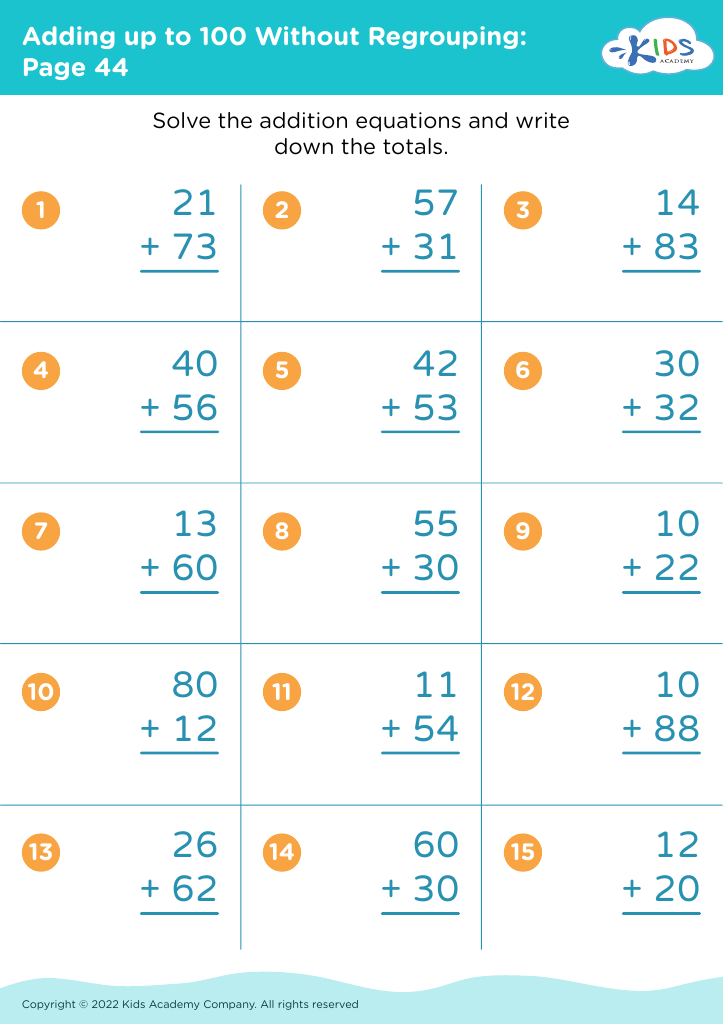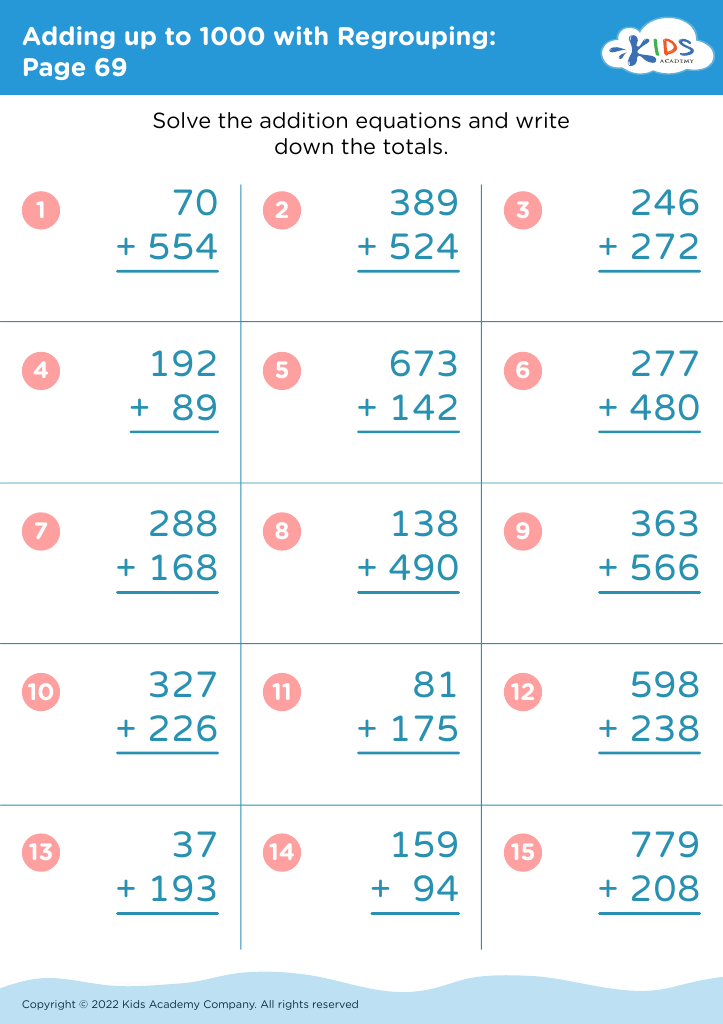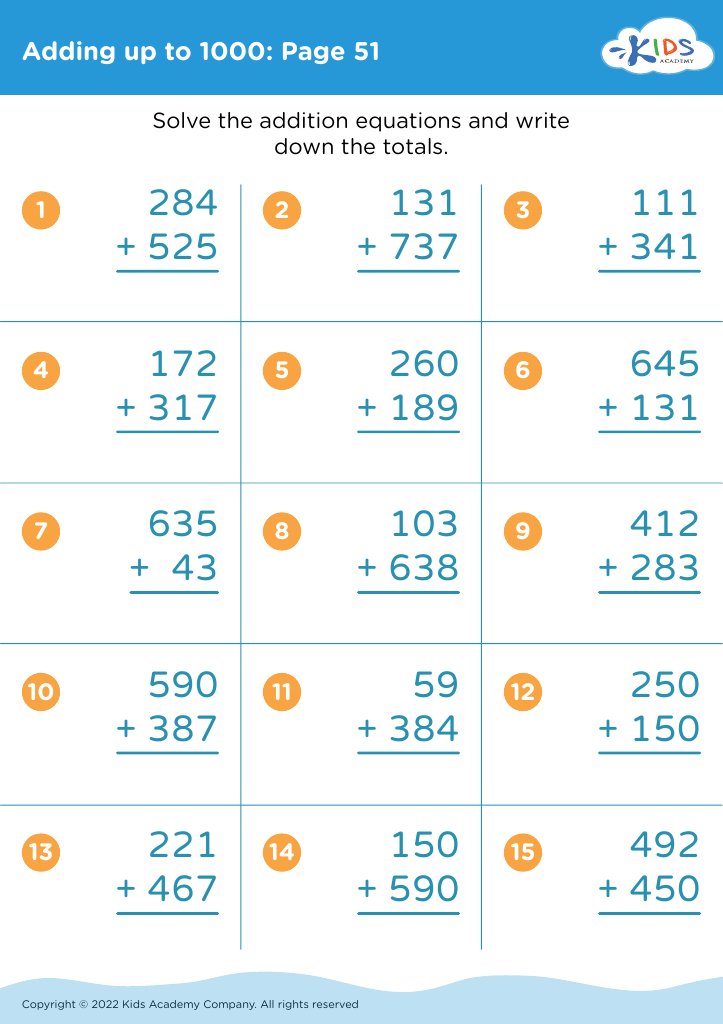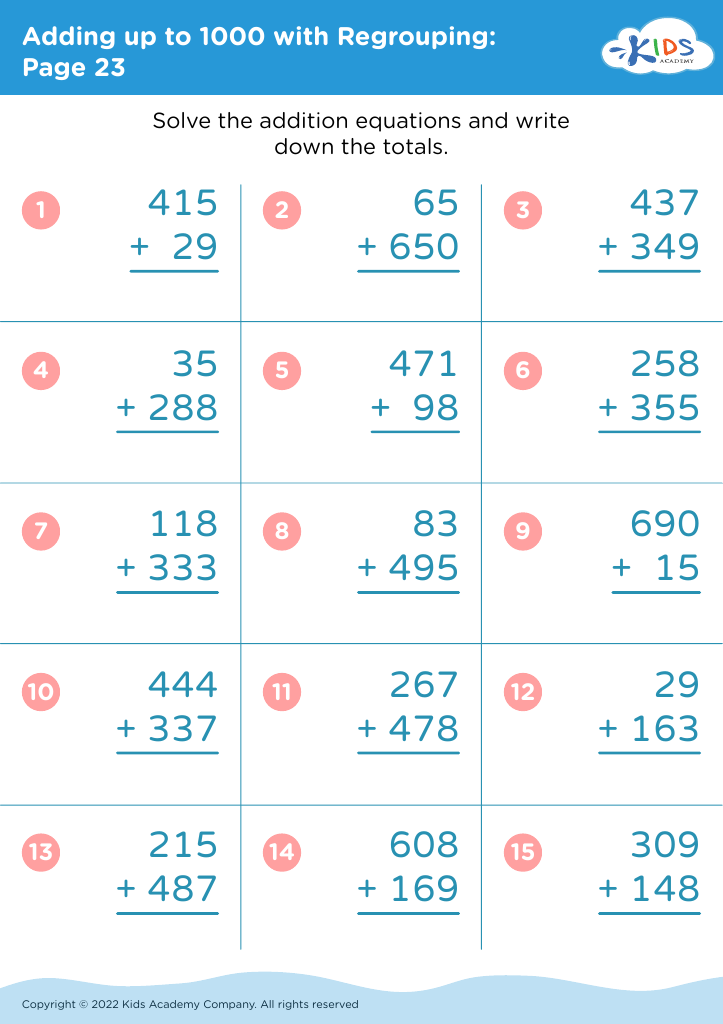Identify shapes Addition Worksheets for Ages 6-8
10 filtered results
-
From - To
Discover our engaging "Identify Shapes Addition Worksheets" designed specifically for children ages 6-8! These captivating worksheets combine the fun of identifying various shapes with the educational challenge of addition practice. Perfectly tailored for young learners, each worksheet helps kids simultaneously develop their math and geometry skills. Visual aids and interactive prompts make learning enjoyable, boosting critical thinking and problem-solving abilities. Ideal for classroom or at-home learning, our worksheets offer an exciting way to reinforce foundational math skills, ensuring your child builds a strong educational base. Spark a lifelong love for learning with our print-friendly resources!
At ages 6-8, children are in a critical developmental stage where foundational skills in mathematics are formed. Identifying shapes and understanding addition are key aspects of this early education. Parents and teachers should care about these topics because they foster essential cognitive and visual-spatial abilities. Recognizing shapes helps children to interpret and organize the world around them, improving their visual-spatial reasoning. This skill is not only fundamental in math but is also applicable in many real-life situations, such as reading maps, understanding diagrams, and general problem-solving.
In addition, proficiency in arithmetic begins with a solid grasp of basic operations such as addition. Mastery of addition lays the groundwork for more complex mathematical concepts like subtraction, multiplication, and division. By exposing children to these concepts early, parents and teachers help to cultivate numerical literacy and a positive attitude toward mathematics. This early exposure influences a child’s confidence and competence in tackling future academic challenges. Encouraging children to explore shapes and practice addition through engaging activities and supportive learning environments can foster a lifelong interest in mathematics and the sciences, enhancing their overall educational trajectory and critical thinking skills. Engaged learning at this stage directly impacts their long-term academic success and problem-solving abilities.
